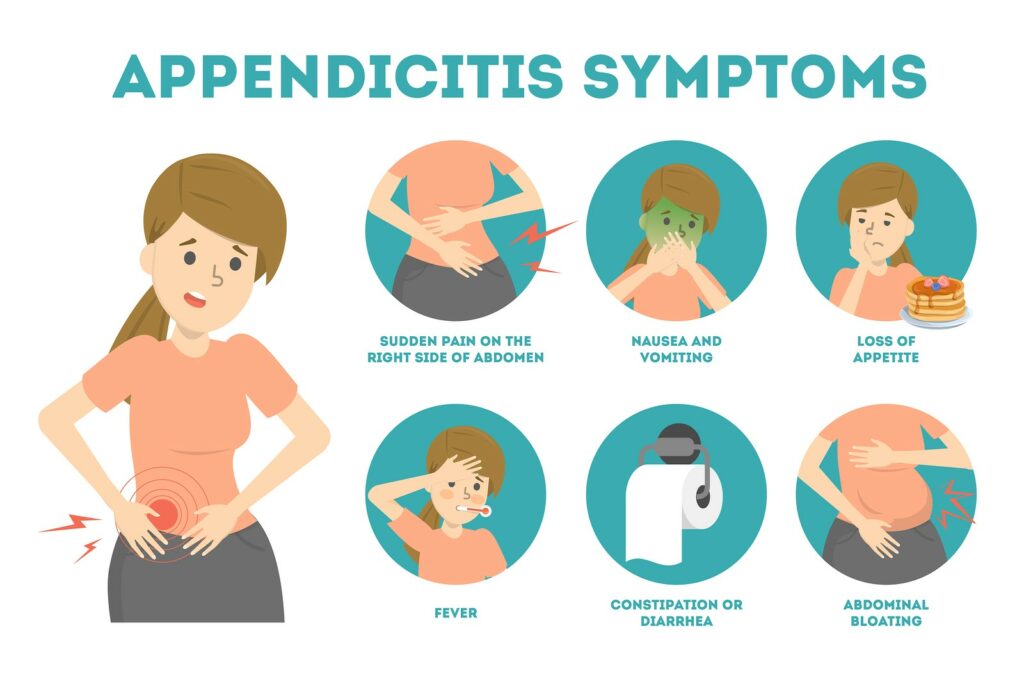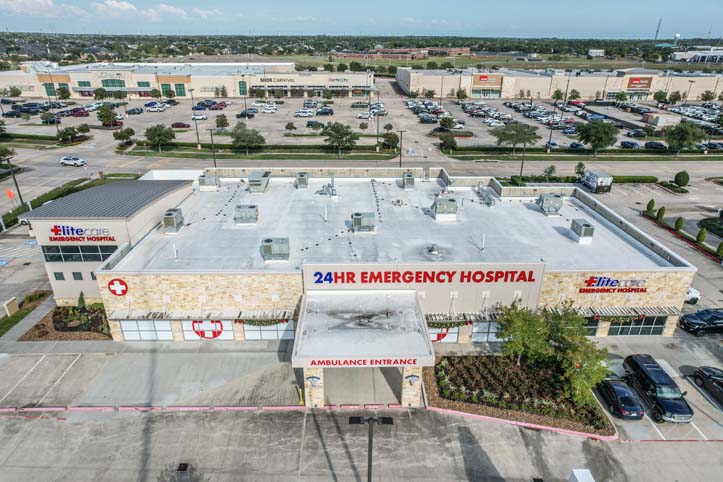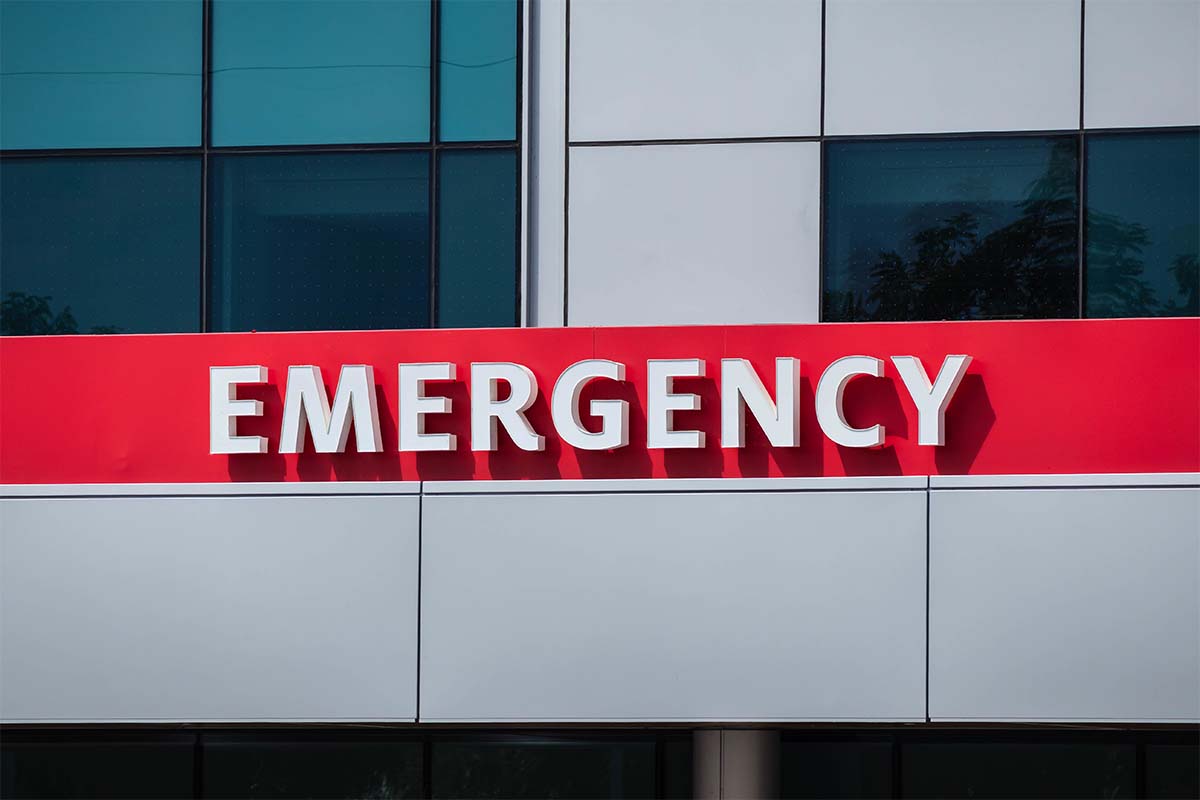
The appendix is a pouch-like organ that sits in the lower right side of your belly. Appendicitis describes an inflamed or infected appendix. However, appendicitis is a medical emergency and can be life-threatening if an inflamed appendix ruptures. According to the National Institute of Health, acute appendicitis is the leading cause of emergency abdominal surgery in the US. (Swain-Wilson 2019)
As per researchers and studies, about 5 percent of Americans experience abdominal pain caused by appendicitis sometime in their lives. Could you be one of them? It most commonly occurs between the teenage years and the 20s, however, it can develop at any age. (Medical News Today 2017)
In this blog, we have covered its causes, symptoms, and treatment of appendicitis. Knowing how to recognize the signs could save your life or that of a loved one. (Medical News Today 2017)
What is Appendicitis?
As the name suggests, appendicitis is the painful swelling of the appendix, which is a small thin pouch about 2-4 inches long. The appendix is attached to the large intestine. While nobody knows what its function is, we do know that removing it is not harmful. (Mayo Clinic 2019)
Fast facts on appendicitis:
- Early symptoms include pain near the belly button that may shift toward the lower right-hand side of the abdomen.
- If treatment for gas does not solve the problem, prompt medical attention should be sought.
- Many people with suspected appendicitis will go directly to the emergency department.
- Early treatment is usually successful, but untreated appendicitis can lead to fatal complications.
(Medical News Today 2017)
What Causes Appendicitis?
The appendix connects to your large intestine. Appendicitis occurs when something — mucus, foreign object, or most often stool (waste) — blocks the opening between the appendix and the large intestine. The blockage causes irritation, inflammation, and possibly an infection.
Recognizing Appendicitis Symptoms

The main symptom of appendicitis is abdominal pain. You may feel discomfort in the entire stomach area. However, there could be additional symptoms such as:
- Abdominal pain that gets worse when you cough or walk
- Abdominal swelling
- Indigestion
- Nausea and vomiting soon after abdominal pain begins
- Loss of appetite
- Fever of 99°F – 102°F
- Inability to pass gas
- Constipation or diarrhea
(Healthline 2016)
Symptoms of appendicitis come on suddenly and intensify quickly. Pain may worsen when you move, take a deep breath, cough, or sneeze.
Acute appendicitis is a severe and sudden condition, with symptoms usually developing over one or two days. If you suspect your abdominal pain is due to appendicitis, you need to seek immediate medical attention.
When left untreated, you run the risk of having your appendix burst a condition known as peritonitis. Peritonitis is a severe life-threatening condition caused by bacteria from your ruptured appendix spilling into your abdominal cavity.
How is Appendicitis Diagnosed
Diagnosing appendicitis can be tricky. Symptoms are often unclear or similar to those of other illnesses, including gallbladder problems, bladder or urinary tract infection, kidney stones, intestinal infection, and ovary problems. Although these tests can help diagnose appendicitis:
- Abdominal Exam: During the examination, they will check for tenderness in the lower right part of your abdomen, as well as for any swelling or rigidity
- Urine Test: This is done to rule out the possibility of your pain is caused by a urinary tract infection or kidney stones
- Blood Test: A complete blood count test will tell our doctors if you have an infection
- Abdominal Imaging Tests: These tests will help find any inflammation of your appendix. Our doctors may order one or more the following exams:
- Abdominal Ultrasound or X-Ray or CT Scan
(WebMD)
When to Seek Medical Help
Appendicitis can be life-threatening, and it requires immediate medical care. It is likely to worsen the longer it is left untreated. Initial symptoms may feel like gas.
Sudden severe abdominal pain is usually a red flag so if you suddenly develop any of the symptoms mentioned above, you should immediately head to the nearest Emergency Room.
Treating appendicitis as soon as symptoms appear will prevent it from worsening and causing further complications.
Fast X-Rays and CT Scans
Our promise to you is that you won’t wait for hours in pain in a crowded hospital waiting room to be seen. Our Board-Certified Emergency Physicians and staff are ready to see you now. Appendicitis is not an emergency that can wait. We see adults and children with the same expert care and have special pediatric accommodations that give extra comfort to children. We want to be your go-to ER. You’ll be promptly greeted and treated in minutes. Our facility has amenities you won’t find in big-box ER’s. We are open 24/7 – 365 days of the year and are confident you’ll find an excellent experience. You have choices when it comes to emergency medical care.
Work Cited
Khatri, Minesh. “Appendicitis: Early Symptoms, Causes, Pain Location, Surgery, Recovery.” WebMD, WebMD, 28 Sept. 2019, www.webmd.com/digestive-disorders/digestive-diseases-appendicitis
“Appendicitis: Early Symptoms and Warning Signs.” Medical News Today, MediLexicon International, www.medicalnewstoday.com/articles/312123
Nall, Ann Pietrangelo, and Rachel. “Emergency Signs and Symptoms of Appendicitis.” Healthline, Healthline Media, 11 May 2019, www.healthline.com/health/digestive-health/appendicitis-emergency-symptoms
“Appendicitis.” Mayo Clinic, Mayo Foundation for Medical Education and Research, 24 May 2019, www.mayoclinic.org/diseases-conditions/appendicitis/symptoms-causes/syc-20369543
Swain-Wilson, Savanna. “11 Signs You May Have Appendicitis.” Insider, Insider, 22 Feb. 2019, www.insider.com/signs-of-appendicitis-2019-2
















